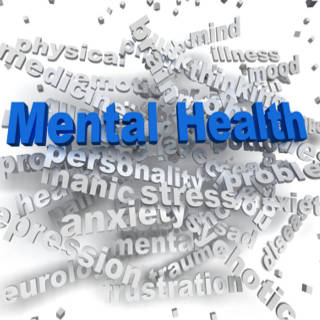Why is there such a stigma?
For centuries, people with mental health disorders have been shunned or excluded…that is the best-case scenario. In worst case scenarios, these people were tortured and killed. What is it about mental illness that makes others react so negatively? What can we do nowadays to help get rid of the stigma that has long been associated with mental health disorders?
 A significant factor in people’s attitudes towards mental health comes from not having an understanding of what is wrong with the person who has a mental health disorder and being fearful of what it could mean to them. Some people are afraid that they could “catch” the disorder and this plays a large part in how they act towards the person with a mental health disorder. Without an understanding, having a mental illness is viewed as a negative characteristic or trait. This gives way to an overall negative view of that person. Unfortunately, these negative attitudes (stigma) towards people with mental health disorders usually doesn’t stop there. Often, they are discriminated against because of their illness. This can be unintentional and subtle, such as someone avoiding the person because they are concerned about the person becoming unstable/violent (whether or not this true). More likely, the discrimination is obvious and direct, typically in the form of a negative comment said to the person with mental health disorder or in extreme cases violence towards that person.
A significant factor in people’s attitudes towards mental health comes from not having an understanding of what is wrong with the person who has a mental health disorder and being fearful of what it could mean to them. Some people are afraid that they could “catch” the disorder and this plays a large part in how they act towards the person with a mental health disorder. Without an understanding, having a mental illness is viewed as a negative characteristic or trait. This gives way to an overall negative view of that person. Unfortunately, these negative attitudes (stigma) towards people with mental health disorders usually doesn’t stop there. Often, they are discriminated against because of their illness. This can be unintentional and subtle, such as someone avoiding the person because they are concerned about the person becoming unstable/violent (whether or not this true). More likely, the discrimination is obvious and direct, typically in the form of a negative comment said to the person with mental health disorder or in extreme cases violence towards that person.
Another big issue is that people with mental health disorders judge themselves negatively because of the stigma that surrounds mental illness. This can have substantial impact on whether or not they seek treatment and, therefore, obtained the help that they need. These negative beliefs tend to make them feel as if they will never get better. This only adds to the situation and can lead to them feeling as if they will never be able to improve their situation. All of these feelings are only complicated further if the person’s family and friends don’t have an understanding of what the person is going through. This lack of a support system makes dealing with their mental health disorder all the more challenging.
As more and more people are becoming aware that mental health disorders are not something that you can catch and that those who have them need help and are struggling, some of the stigma that has been present for so long is starting to go away. We are still a long way from having a society that is truly accepting of those with mental health disorders and actually embraces them. However, there are numerous things that we can do to help this process. The first would be to have an open discussion about mental health to provide a better understanding for those who do not personally experience it. This will help encourage everyone to be more empathetic and understanding (it is hard to understand something that you’ve never experienced). While having these discussions, we need to remember to use respectful language. A person experiences mental health disorder, they are not a mental health disorder (a person experiences bipolar disorder, they are not bipolar). This also means that we shouldn’t use mental health conditions as adjectives, such as saying your friend is OCD because she likes to have things organized. We should be aware of and not label someone who has a mental health disorder as “crazy,” “psychotic,” or “insane.” We should stay away from using the terms “others” or “abnormal” because this creates an “us versus them” mentality. Only adding to stigmas and contributing to isolation of those who need help. If you hear misconceptions from others, don’t be afraid to speak up and correct them. The best thing that we can do is to be empathetic, understanding and supportive.
If you are person with mental health disorder, please seek treatment and don’t let stigmas create self-doubt or shame about your condition. You didn’t ask for it any more than a person asks for a heart attack or diabetes. Don’t isolate yourself…join a support group to have a network of people that you can rely on. If you feel comfortable, speak out against stigmas associated with mental health disorders. This will make it easier for you in coping with your mental health disorder and it will help others who might be going through a similar situation. Remember, you are a unique person who has a great deal to offer that happens to have a medical condition that needs to be treated just like any other condition.
Mental health disorders are nothing to be ashamed of! They are like any physical, medical condition that you can see needs to be evaluated and treated so the person can become well. It is our job as a society to gain a better understanding of mental health disorders, to help decrease the stigmas that have been in place for far too long and offer support to those who need it.